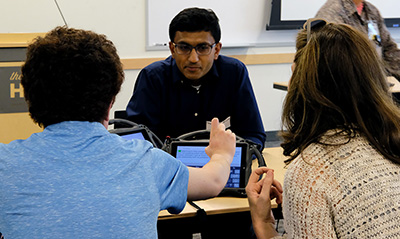Online RESPECT Conference and Paper on Disability Data

Every year, many of us from AccessComputing head to the RESPECT (Research in Equity and Sustained Participation in Engineering, Computing, and Technology) and SIGCSE (Association for Computing Machinery Special Interest Group on Computer Science Education) conferences, which are held back-to-back in February or March. This year, RESPECT and SIGCSE were scheduled for March 10-14, 2020 in Portland, OR. Just a few days ahead of time RESPECT, the smaller of the two conferences, pivoted to an online format. SIGCSE was set to go on as planned and pre-conference sessions were held March 10th. On the morning of the 11th, just as the main conference sessions were to begin, the Governor of Oregon banned large gatherings and the SIGCSE conference was canceled.
The RESPECT organizers did an amazing job shifting to an online conference. They used Zoom for each of the sessions with extensive use of the breakout room features to foster small group conversations and networking. Even though we were all spread out across the country, it was a great opportunity to catch up with our broadening participation in computing (BPC) colleagues nationwide.
It also meant that Richard Ladner and I were still able to present our research paper: Why is Data on Disability So Hard to Collect and Understand? The paper was written to serve as a call to action for our BPC colleagues to collect data on disability. Most BPC work focuses on gender and/or race. Occasionally disability is mentioned, but data on disability status of students and professionals is rarely collected. When it is collected, it varies dramatically depending on the way that questions are asked and is often not analyzed or discussed.
Are you considering how you can collect data about individuals with disabilities in your department, classes, or projects? We suggest using these two questions:
- Do you identify as having a disability or other chronic condition?
- Yes
- No
- Prefer not to disclose
- How would you describe your disability or chronic condition?
- Attention deficit
- Autism
- Blind or visually impaired
- Deaf or hard of hearing
- Health-related disability
- Learning disability
- Mental health condition
- Mobility-related disability
- Speech-related disability
- Other (please specify)